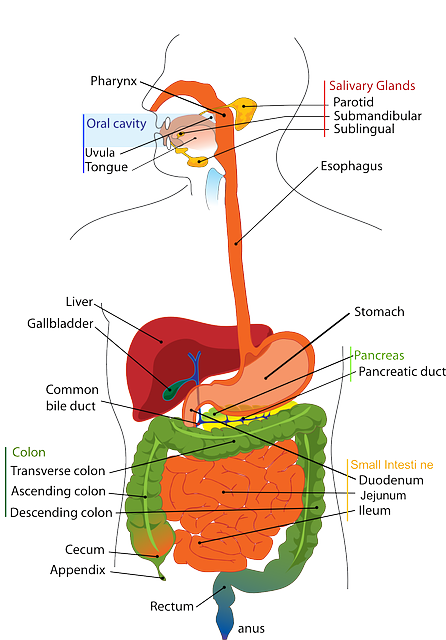The origin of pancreatic cancer is the pancreas, an assisted digestive organ. This organ primarily releases digestive enzymes to help in the digestion of food, as well as secrets hormones to normalize blood glucose level.
 The maximum chance of growth of the tumor is at the lining of the duct which carries digestive juice out of the pancreas.
The maximum chance of growth of the tumor is at the lining of the duct which carries digestive juice out of the pancreas.
Pancreatic cancer detection at an early stage is difficult as it does not provide any signs and symptoms in the initial stage. Only in the advanced stage when the cancerous growth spread out to other parts of the body starts providing symptoms. The treatment plan depends upon the spreading of the disease.
Symptoms of pancreatic cancer
Initially, pancreatic cancer is asymptomatic; but the following are the symptoms that occur in the advanced stage:
- Pain in the abdomen radiates to the back.
- Loss of appetite.
- Unexplained weight loss.
- Jaundice which is associated with yellowish skin color, eyes become white, light-colored stool with dark-colored urine passage.
- Skin itchiness.
- Worsening pre-existing diabetes or new diagnosis of diabetes.
- Clotting of blood.
- Fatigue.
Types of Pancreatic cancer
Malignant tumors in the pancreas are two types – exocrine or neuroendocrine tumors. Adenocarcinoma is one of the most common exocrine cancerous tumors in the pancreas. Ductal adenocarcinoma begins in the ducts of the pancreas and commonest type of pancreatic cancer. An intraductal mucinous neoplasm is a rare form of exocrine tumors. In the initial phase, it is benign but gradually it turns cancerous.
However, it is necessary to mention that almost 93% of pancreatic cancer are exocrine and 7% are neuroendocrine tumors.
The neuroendocrine tumor that develops in islet cells is termed islet cell carcinoma. Like this, cancerous tumor forms in the cell which produce insulin is termed insulinoma. Jaundice and weight loss are common symptoms in certain pancreatic neuroendocrine cancer due to the overproduction of certain hormones.
Causes of pancreatic cancer
Both benign and malignant tumors can form in the pancreas. Malignant tumor formation is clinically termed pancreatic cancer. Smoking and certain inheriting genetic mutations are considered risk factors for pancreatic cancer development.
The cellular structure of the pancreas alters due to DNA mutation. Altered DNA mutation instruct pancreatic cells to grow abnormally which cannot be controlled through regular cellular pathways. The unwanted cell growth forms a pancreatic tumor. The untreated pancreatic malignant tumor spread to adjoining tissue and distant organs also.
Risk factors
Following are the risk factors that may trigger pancreatic cancer progression:
- Smoking.
- Pancreatitis or inflammatory condition in the pancreas.
- Diabetes.
- Family history of pancreatic cancer.
- Family history of genetic.
- Syndromes like BRCA2 gene mutation increases the risk of pancreatic cancer.
- Lynch syndrome and familial atypical mole-malignant melanoma (FAMMM) syndrome.
- Obesity.
- Older age, as people more than 65 years age have diagnosed with pancreatic cancer.
Treatment
The treatment plan for pancreatic cancer depends upon location, stage, patient’s overall health condition, the degree of cancer spreading locally or beyond. Usually, the diagnosis of pancreatic cancer is possible at an advanced stage, and surgical removal of the cancerous growth is not possible in an advanced stage.
However, the following are the possible treatment options for pancreatic cancer:
Resection of the cancerous part of the pancreas. Surgical removal of adjoining lymph nodes. Pancreatectomy is the surgical removal of whole or part of the pancreas.
Radiation therapy for shrinking or killing cancerous cells.
Chemotherapy is the single or combination of medicines that kill cancer cells.
Immunotherapy is given to the patients to activate the immune system of the body to fight against pancreatic cancer. But in most cases, this treatment unable to give ineffective results in pancreatic cancer. However, a specific genetic change may give more therapeutic benefits in pancreatic cancer treatment.
Targeted therapy acts on certain genes or proteins that trigger cancer growth in the pancreas. But before initiating this treatment, genetic testing is conducted to check whether targeted therapy will give an effective result or not.
The doctor may advise the patient to join in clinical trials to get the novel unapproved treatment if the available treatment fails to give the unsuccessful result.
Combination treatment approach
Usually, doctors prefer to treat the combination of radiation therapy and chemotherapy in association with surgical intervention. The combination therapy helps to shrink the cancerous growth before surgical removal and also assists to kill the remaining cancerous growth. Moreover, supportive care or palliative treatment requires for pancreatic cancer to provide symptomatic relief.
References:
https://www.mayoclinic.org/diseases-conditions/pancreatic-cancer/symptoms-causes/syc-20355421
